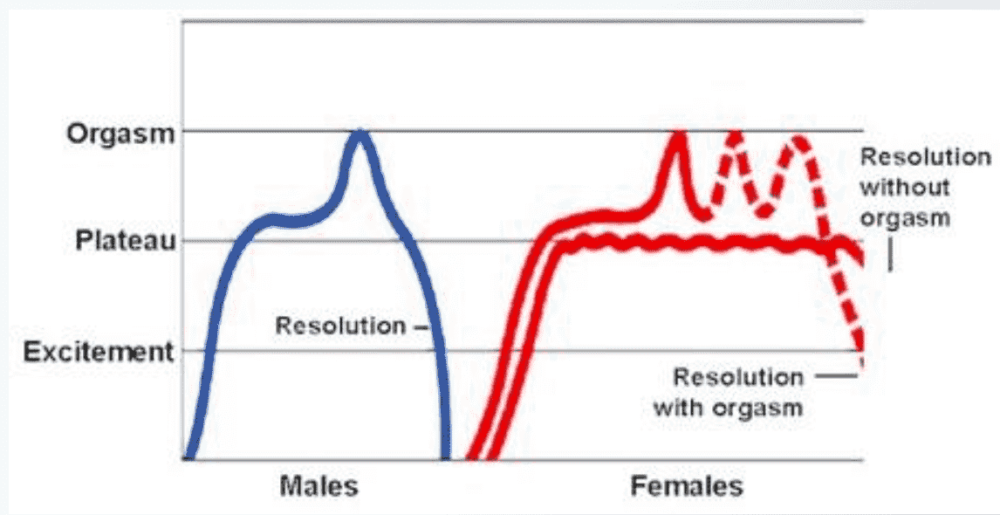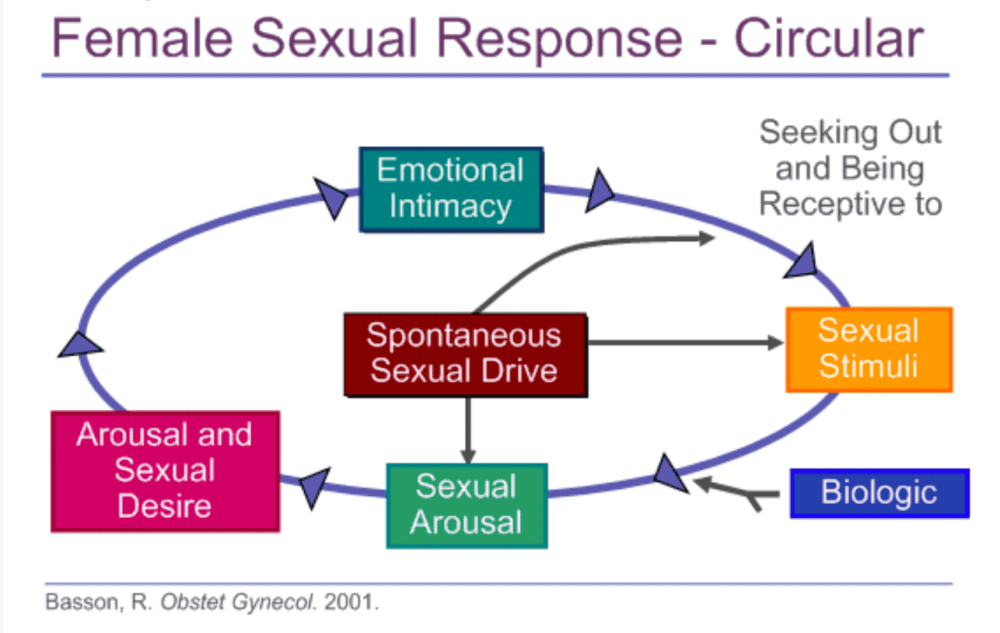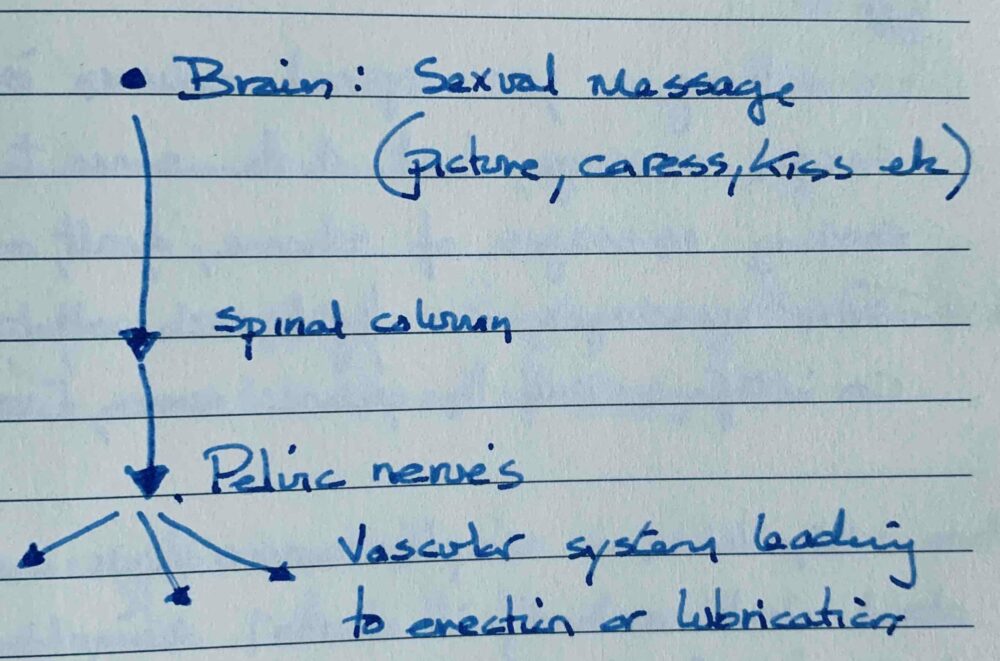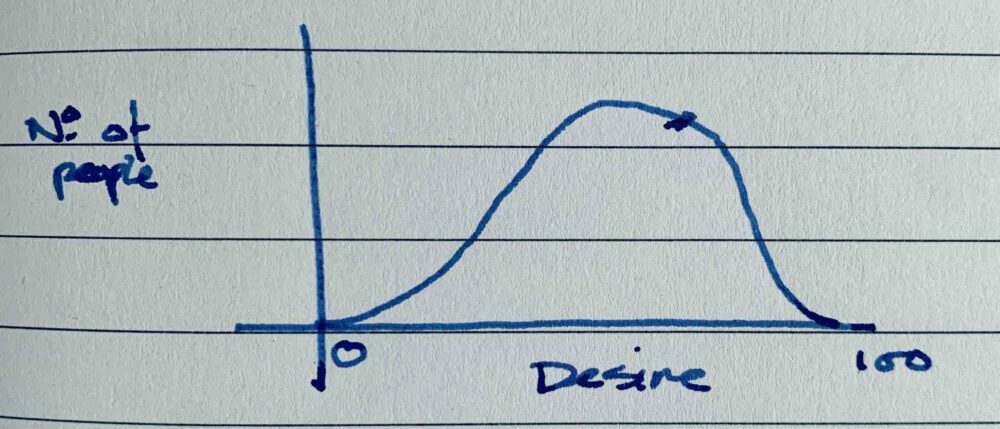Do you think sex is important in a relationship?
If you do, you’re going to love this blog post.
And if you don’t, you’re still going to find some of it interesting, promise.
How come?
Let me explain.
Towards the end of last year I took a 12 hour online training with Marty Klein, Ph.D. He’s been a licensed marriage and family therapist and certified sex therapist for over thirty years.
When it comes to understanding sex between couples and how to sensitively work with the inevitable sexual issues that come up over the lifespan of a healthy relationship…
…Marty is my go to guy.
Here’s a snippet of the blurb I received in an email that enticed me to attend this course:
“This class, by SASH’s own veteran sex therapist and innovative clinician Dr. Marty Klein, describes the various ways the aging process affects patients’ sexual function and experience…you’ll learn key medical information, explore mid-life desire and arousal, and learn practical interventions for couples and individuals who want to heal or improve their sexual connections.
Most people develop their model of sexuality when they have a body that’s youthful, strong, flexible, and healthy. But no one has that body for long—and if people don’t adjust their model of sexuality as their body changes, they run into trouble. That’s when couples and individuals come to see us. SASH’s new course will help you deliver high-quality, effective treatment to this large population.”
For this weeks South Devon Couples Therapy blog post, I thought I’d share with you the notes I took during the three, 4-hour workshops.
I certainly learned a thing or two…
…And so might you.
As you read, keep in mind what follows was taken directly from the notes I wrote down during the workshops. So as you read them, they might not always be complete. And they might not always read smoothly with one sentence – or paragraph – flowing sensibly into the next. They’re notes after all. But where possible I have tried to smooth the ride out for you.
With this in mind…
…Here goes.
Conditions
Conditions are aspects you need for enjoying sex, such as:
- Conditions about myself – Personal hygiene, be in love
- Conditions about my partner – Communication, personal hygiene, dominant, submissive
- Conditions about the environment – Privacy, kids out of the house, clean room, romantic
Here’s a list of common conditions:
- Privacy
- Being in love
- Afraid of getting caught
- Lots of touching
- Being drunk
- Lots of verbal communication
- Feeling respected
- Feeling naughty
- Feeling safe
- Being dominated
- Secure about contraception
- Feeling clean
This is a sample list of conditions people regularly report, they may or may not be yours. And it’s important to realise your conditions may change as you change.
Here’s a list of things that might changes in someone’s conditions:
- I want more privacy
- I want less spanking and rough play
- I want to feel loved more
- I want to feel more connected
- I like a physically comfortable environment more
- I don’t want to get high for sex anymore
- I need a hot bath before we start
- I need an anti-inflammatory an hour before we start
- I don’t care about religious restrictions anymore
As you age, certain conditions can drive your sex life more than hormones.
People don’t always approve of their own turn ons.
Question: What are you conditions for enjoying sex? And are they being met?
Question: How do you feel about what you want in order to have sex.
Question: How realistic are your conditions?
It’s common for couples to present in counselling with something like the following:
Client: “I don’t enjoy sex anymore.”
To which a good response is:
Counsellor: “Tell me more about the sex you don’t enjoy…”
It often becomes clear during this conversation that their conditions for sex are not being met.
Given that life rarely presents us with perfection, it’s important to know what our needs and wants are. Because it’s useful to be able to enjoy sex even when you don’t have perfect conditions.
Menopause
You don’t have much control over the physical changes you experience as you age. But you can improve your emotional response to those changes.
You don’t have to like it, but you’ve got to accept it.
E.g. It’s possible to enjoy playing tennis just as much in your 50’s as you did in your 20’s.
It’s just gonna be different.
You have more choices about what you focus on than you think.
Disrupt Word
E.g. “Dinosaurs, Dinosaurs” – Means we stop what we’re doing whilst I attend to the cramp in my leg etc.
Many sexual difficulties start with unrealistic expectations. So identify and challenge clients ideas and perceptions about sexuality and their expectations of their partner. We need to go beyond the surface level.
Ask people why they want what they want, not to challenge, but to understand their situation.
Explore their conditions, expectations and perceptions around sex in case they need redefining in light of where they are now.
We Have To Constantly Relearn
What Satisfaction Feels Like
As We Get Older
Unprocessed relationship wounds can make intimacy and sex difficult.
Talking About Sex
Food can be a great metaphor for talking about sex with clients who are uncomfortable talking about sex. What’s true for food is often true for sex.
“What do you do for fun?” You can use the answer to this question because it’s meaningful for them and they have some skill with it.
You can then use their interest and skill to refer to sex.
Are the couple able to talk about their sex life? Do they talk about their body’s without awkwardness or shame?
Reminders
Many people:
- Have only had sex in the dark
- Have never seen their partner naked
- Don’t have words for sexual body parts
- Have never discussed these body parts with anyone else
- Think that porn accurately portrays these body parts
- Have never discussed these body parts with a physician
- Don’t know how these parts work
- Think their own body parts are abnormal, dirty, or shameful
Middle age can be the time to address issues like these and to explore if either partner has unrealistic or unreasonable conditions.
Sexual Response Cycle – 1970’s Style

Female Sexual Response Cycle – 2001

*Source: 2001 Journal of Sex & Marital Therapy, 27, 395-403.
To maintain my sense of arousal and desire, it’s not just a case of more intense stimulation.
Perception
Self Perception – That “I’m less desirable” leads to low desire and low arousal.
Perception – That “we can’t have real sex” e.g. because my erections are unreliable, I no longer climax inside a vagina, age related issues with vulva makes penis/vagina sex uncomfortable etc, leads to low desire and low arousal.
When evaluating clients pay close attention to the stories they’re telling themselves.
For both partners – A persons body image is a better predictor of sexual satisfaction than their body. If a person doesn’t feel/believe they’re sexually attractive it can be very hard for them to enjoy sex.
Sexual Function

When “The System” works it’s a beautiful orchestra of body parts, when it works you don’t have to do much to get it working (e.g. in youth).
But if any of the body parts, or the interface between these body parts is compromised, then the system is easily interrupted.
Sexual dysfunction is when the brain-spinal column-pelvic nerves-vascular system transfer doesn’t work smoothly.
It’s often the result of emotional ‘noise’ while someone expects a sexual message to get or keep them aroused.
Example:
Imagine your spinal column is sending a sexual message, but at the same time it’s also sending messages of shame, guilt, anxiety, worry etc. These messages can fight each other and ‘The Noise’ can interfere with the pelvic nerves and the vascular system.
So when a couple comes to us and complains about what a body part is or isn’t doing during sex, we look for:
“What messages are going down the spinal column that are interfering with the sexual message and interfering with what you want your genitalia to do?”
Alcohol and drugs can slow down and disrupt this whole process.
Your typical penis needs some kind of touch or stimulation to get erect.
Your typical labia, vagina needs some kind of touch or stimulation to get moist.
Sexual Orientation
Sexual orientation is a continuum, not a switch.
People’s sexuality is complex. People may think about doing something but wouldn’t dream of doing it in a million years. e.g. A man might be hetro in his behaviour and homo in his fantasies.
And that’s normal.
Pain
Chronic pain interferes with ALL aspects of sexuality, but most people won’t bring this up, sometimes not even with their partners.
In middle age and beyond, weight-bearing joints can be important sexual body parts.
Orgasm and Performance
There’s a harmful idea in our society that people have to have an orgasm every time they have sex. The truth is people put far too much meaning on orgasm.
Don’t encourage clients to see sex as a performance. Instead guide them toward sex that is more enjoyable. When it comes to enjoyable sex, the low hanging fruit is:
- Self Acceptance
- Communication
- Reasonable Expectations
These are the emotional skills required for enjoyable sex.
Remember, if you live long enough, the gradual deterioration of your body is inevitable.
Desire Discrepancies
Desire is distributed in society:

Therefore:
- A “23” on the desire scale will never be a “93”
- A “93” on the desire scale will never be a “23”
The sex therapy field has little success in desire discrepancy issues.
Random Notes
Your ideas are not facts.
Prostate exam = “Yeah, that’s the rent you pay for having one of those.”
Narratives of inadequacy
- I’m too old
- I’m too fat
- I’m not wild and sexy
- My [body part] isn’t normal
- I was never like that
- I’ll disappoint a partner
- I’m too embarrassed
- It’s been a long time
- It’s too much work
Narratives of Adequacy
“When it comes to sex…”
- I enjoy physical connection
- I can manage unexpected moments
- I don’t take individual encounters too seriously
- I have a sense of humor
- I know sexual response is not voluntary
- I like being emotionally present
- I usually remember what my partner(s) likes
- I’m able to communicate my wishes
- I’m able to say & hear ‘no thank you’ in a friendly way
- I feel entitled to satisfaction
- I enjoy being generous
“We need to help patients
develop narratives that will support them
in creating enjoyable sex
regardless of their life stage
or physical abilities.”
Marty Klein
Conclusion
These notes barely scratch the surface of the content covered during the 12 hour workshop. But if you’re experiencing any sexual struggles in your relationship, I hope they may have brought you some comfort.
Let me leave you with some questions worth your consideration:
- Question: What are your conditions for enjoying sex? And are they being met?
- Question: How do you feel about what you want in order to have sex.
- Question: How realistic are your conditions?
- Question: The very next time you have sex, what do you expect the experience is going to be like?
And if you’d like professional help with any relationship struggles you’re experiencing right now with your partner – including sexual struggles…
…I can help.
For more information on the services I offer to couples click the links below:
Face to face couples counselling
Online couples counselling
Intensive two-day sessions click here
Bye for now
Marcus
